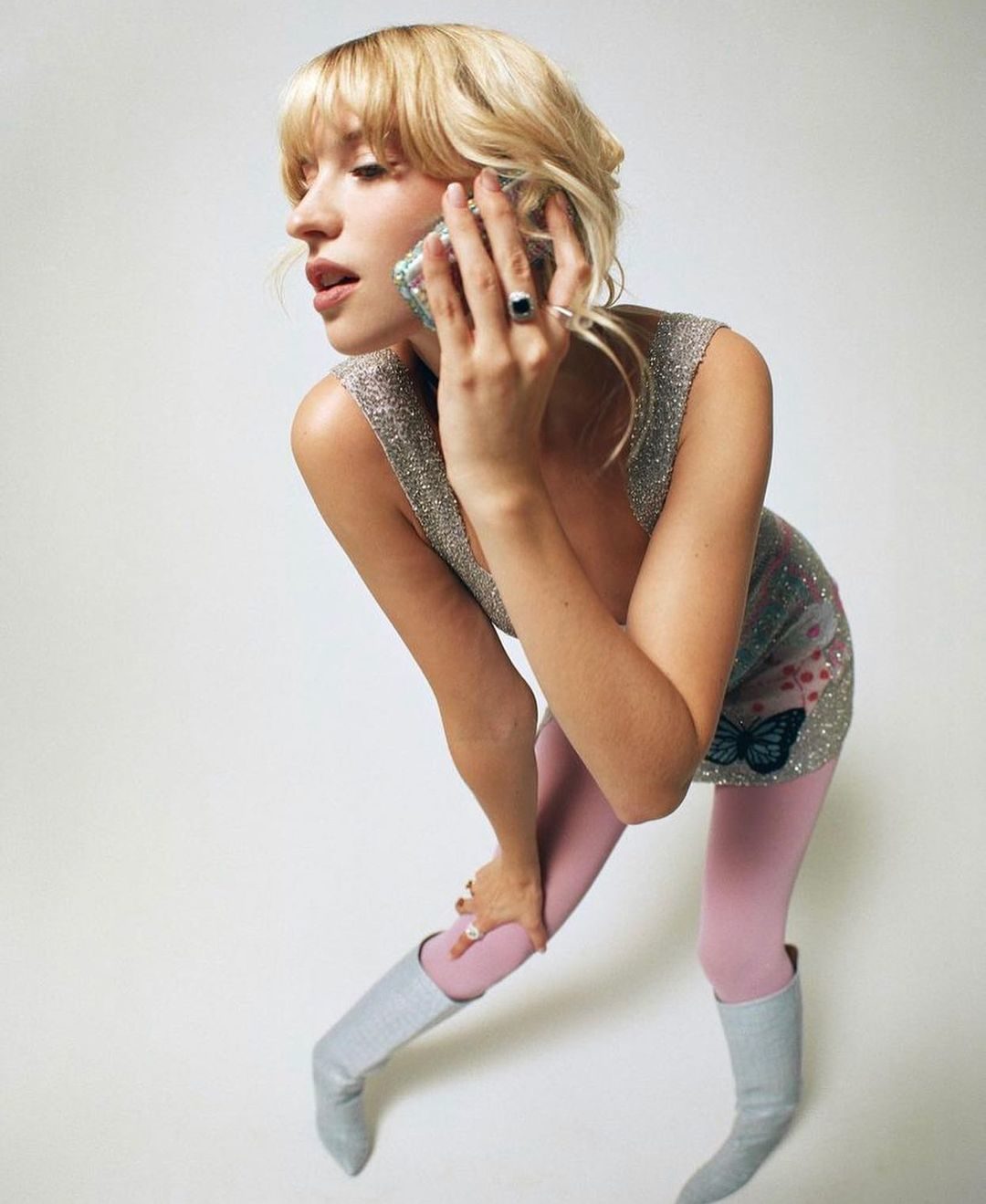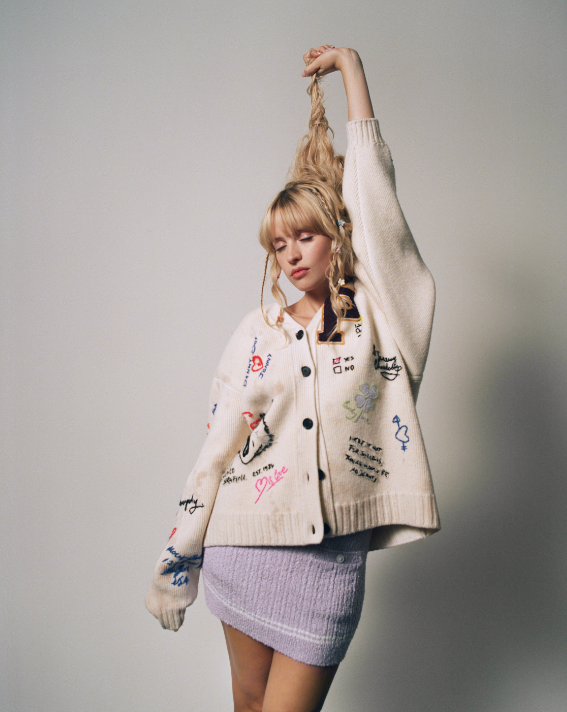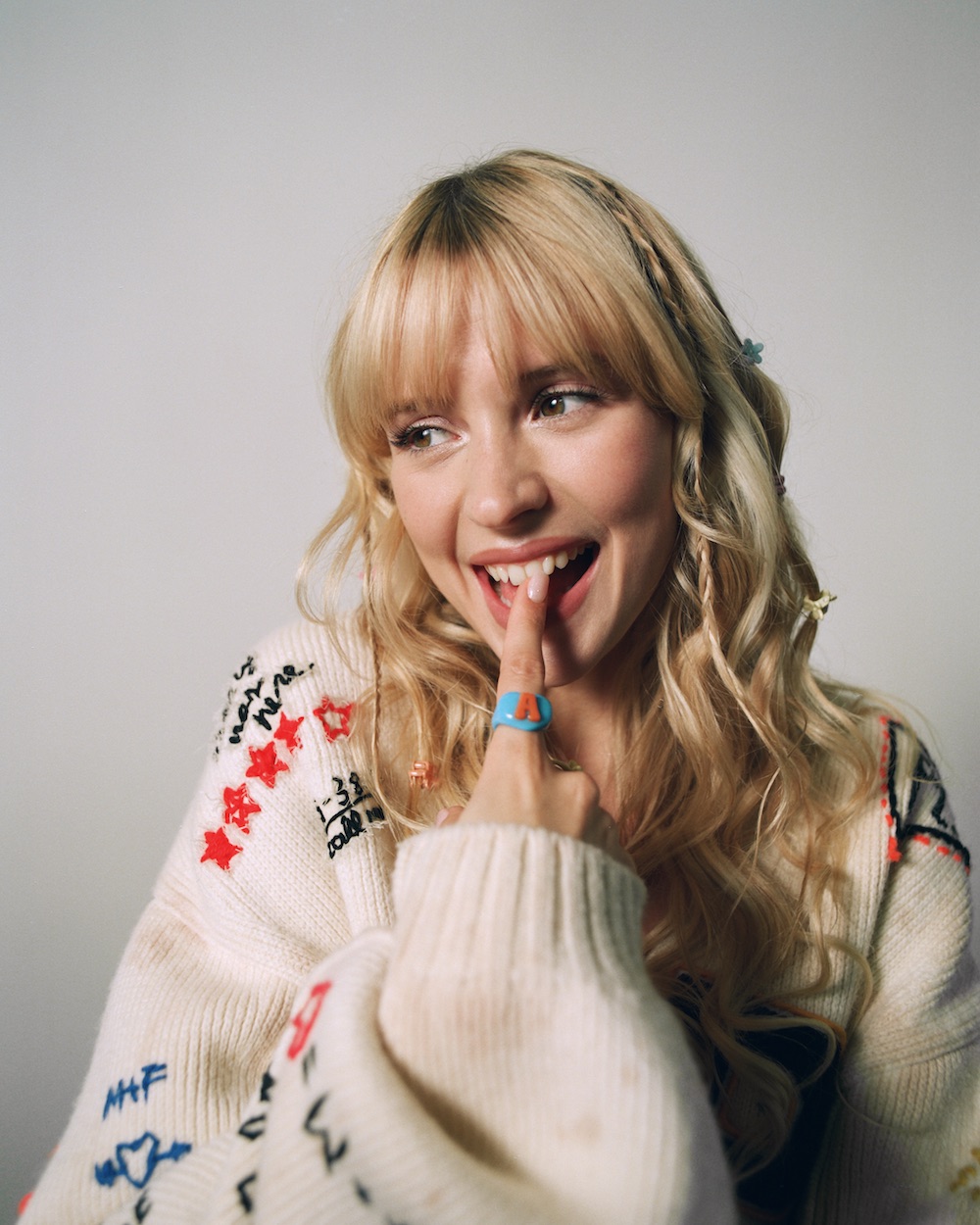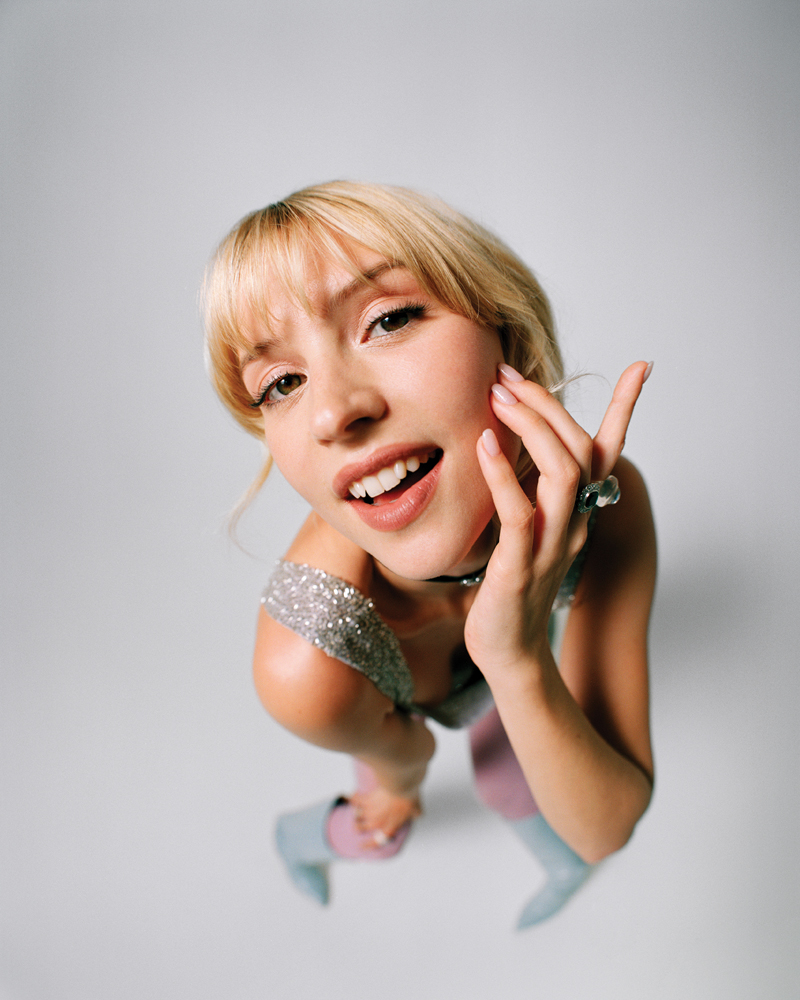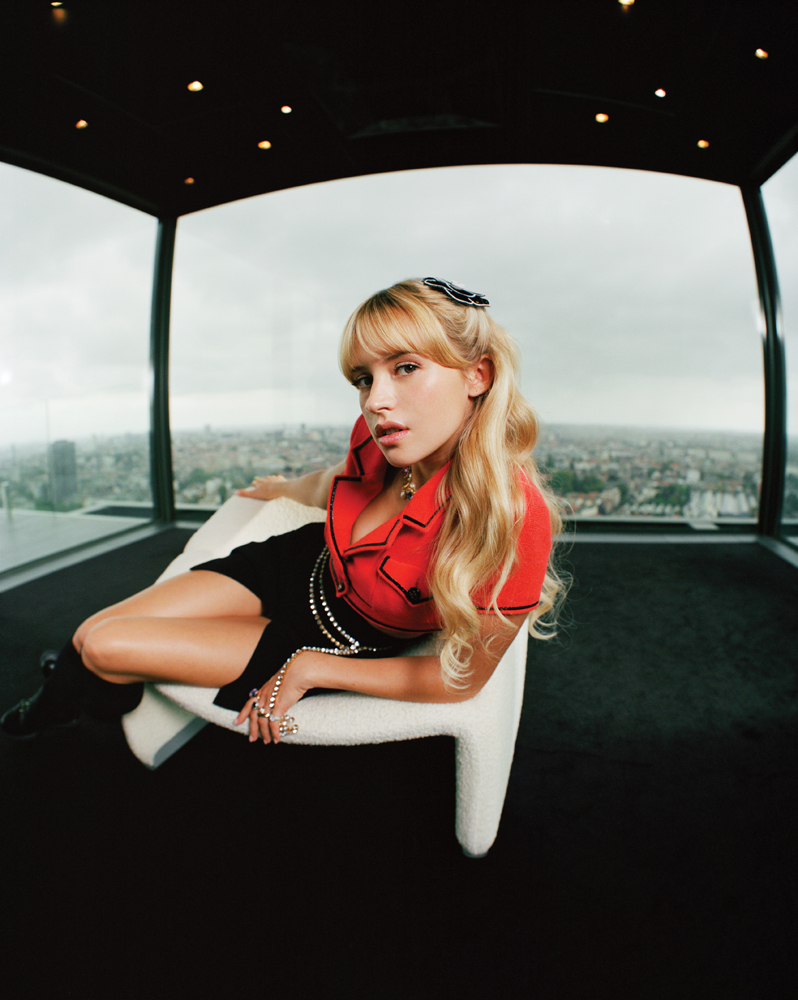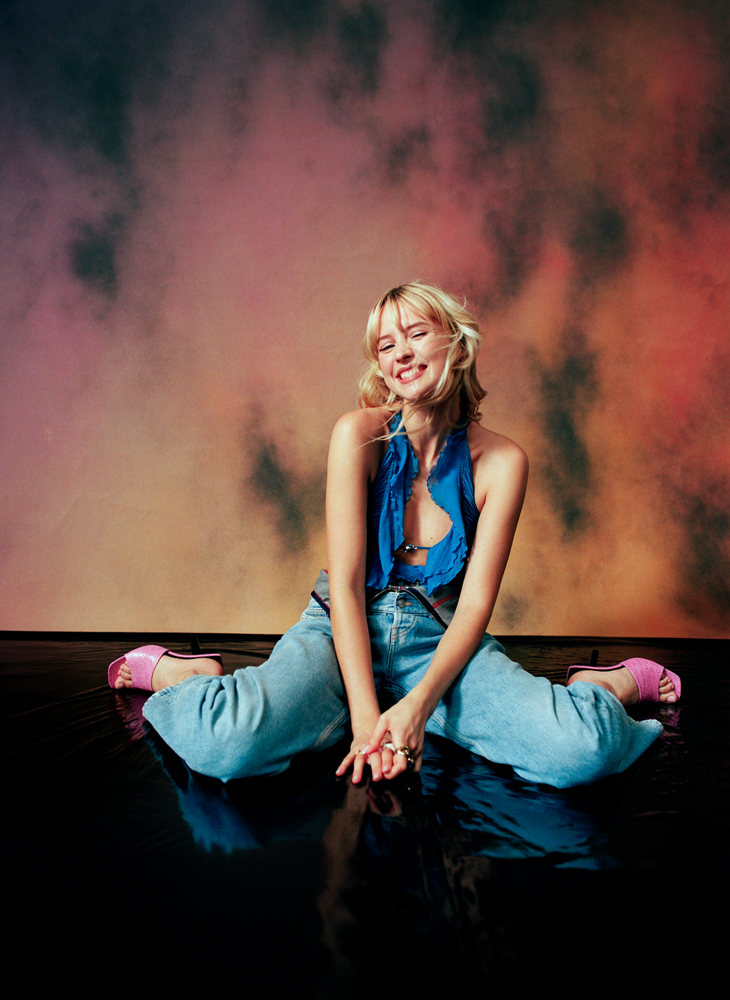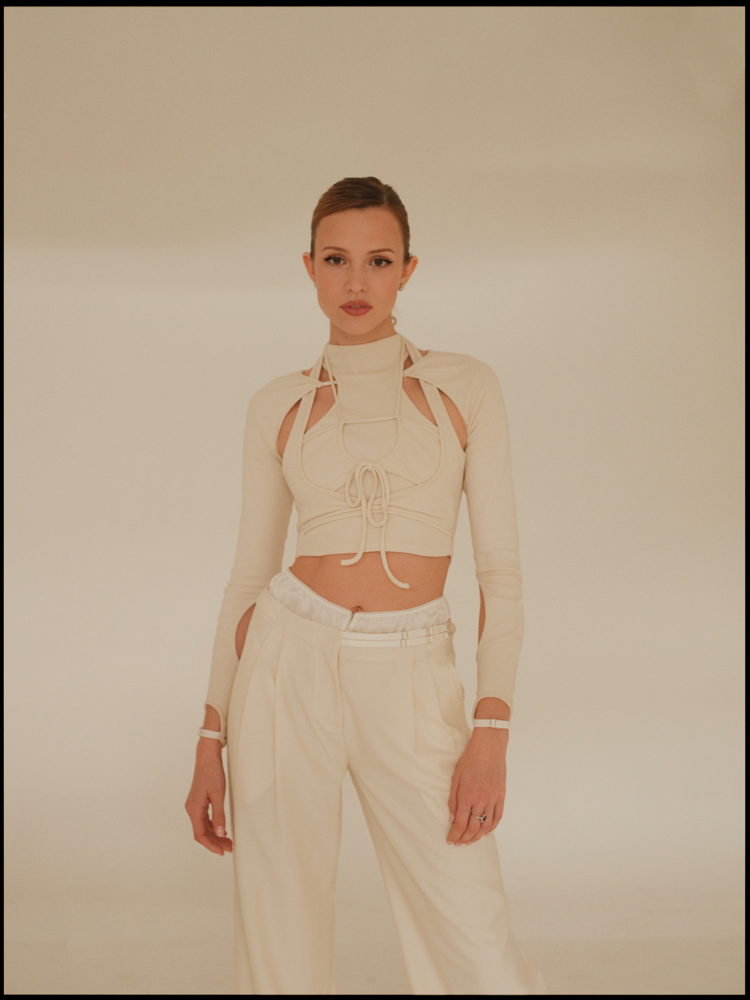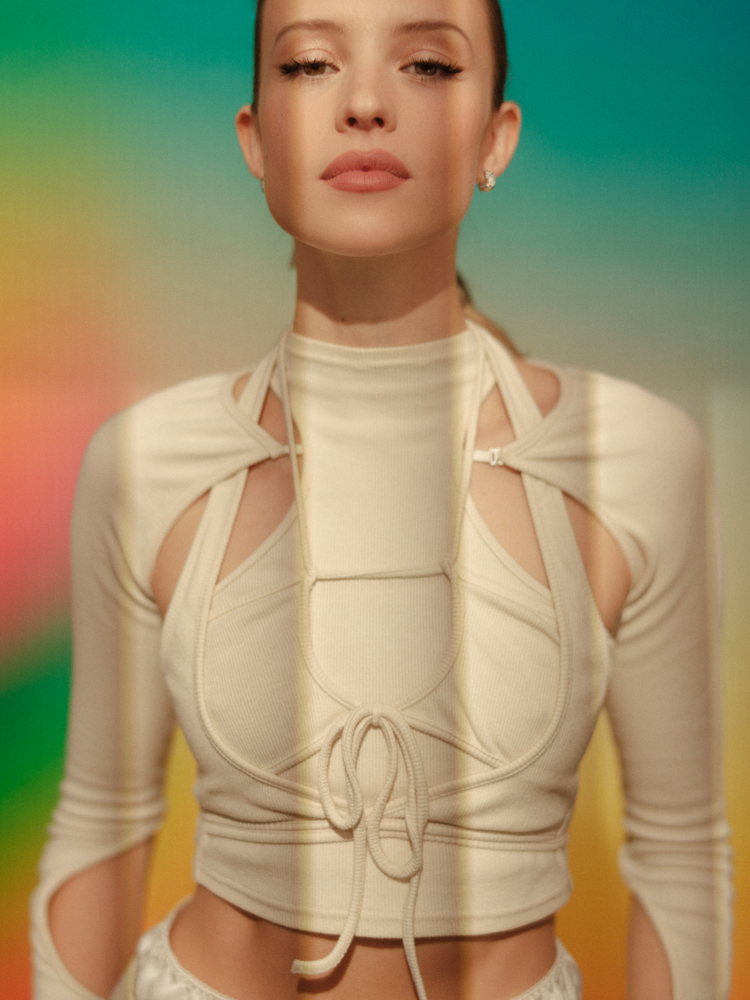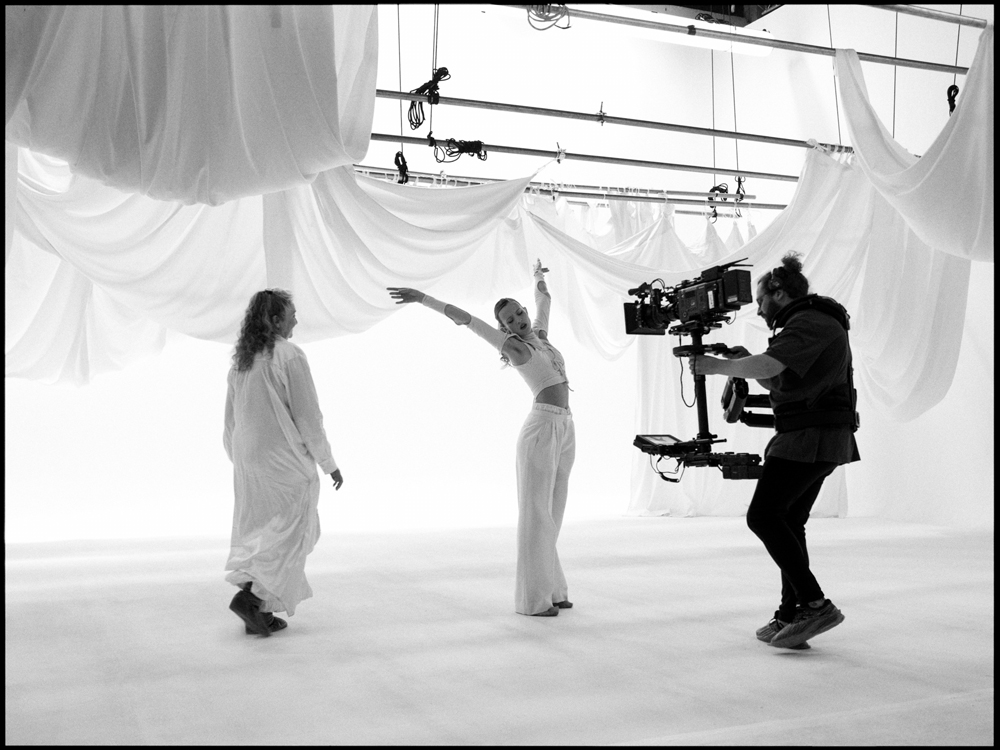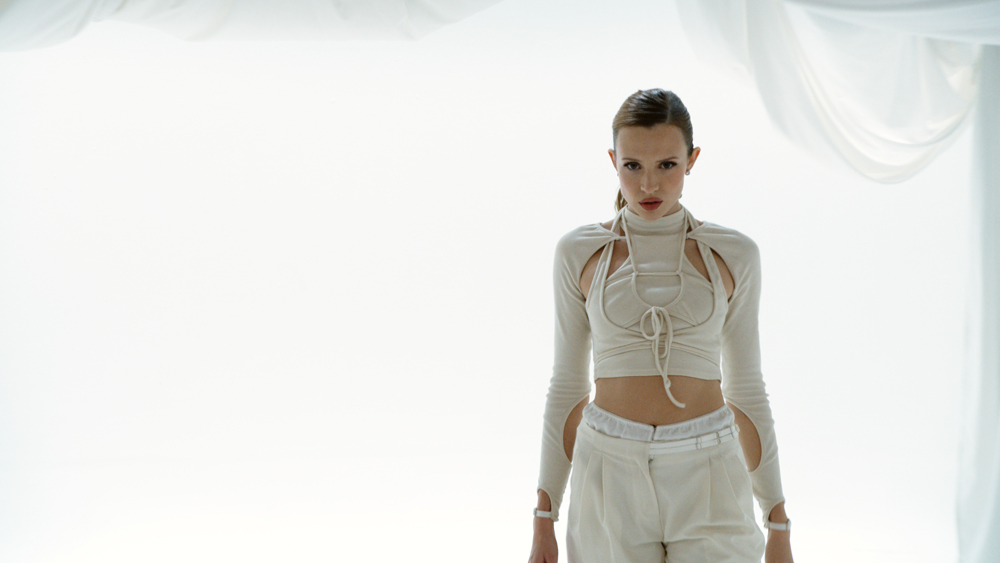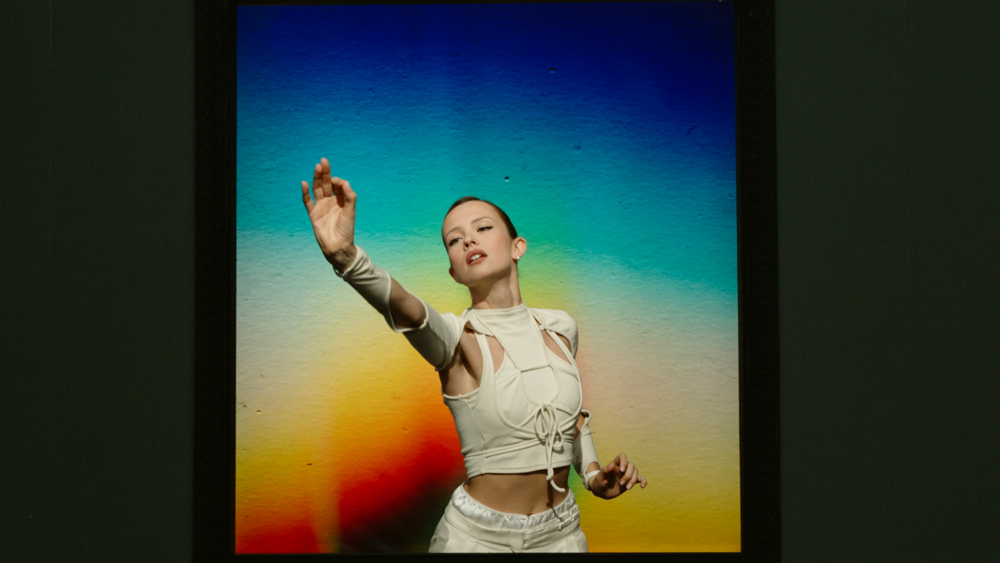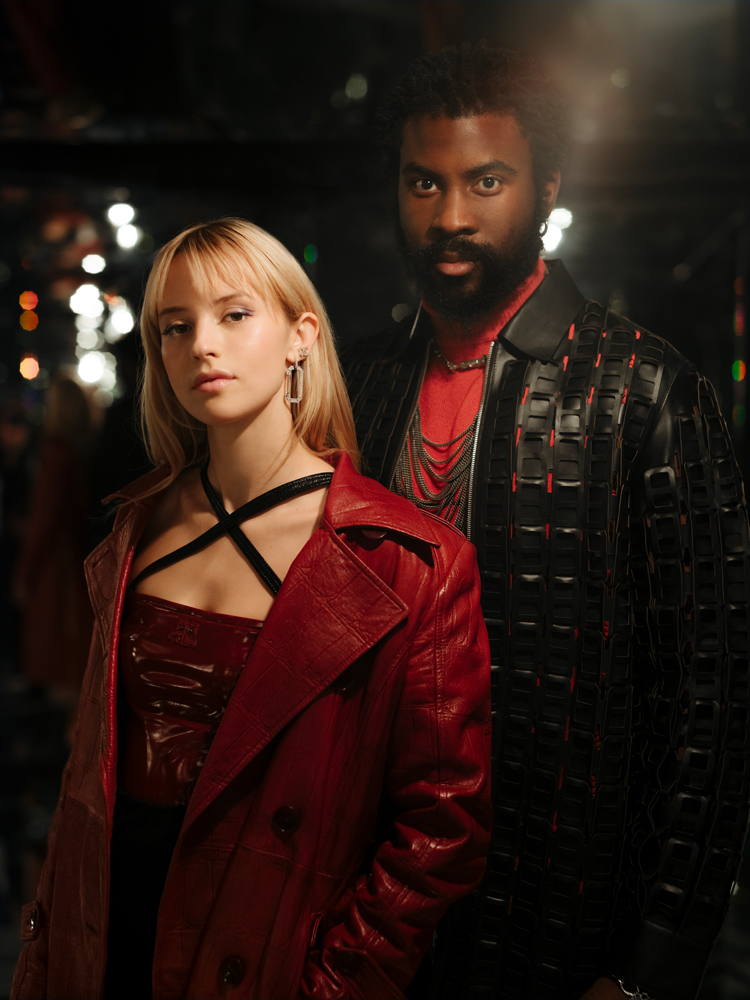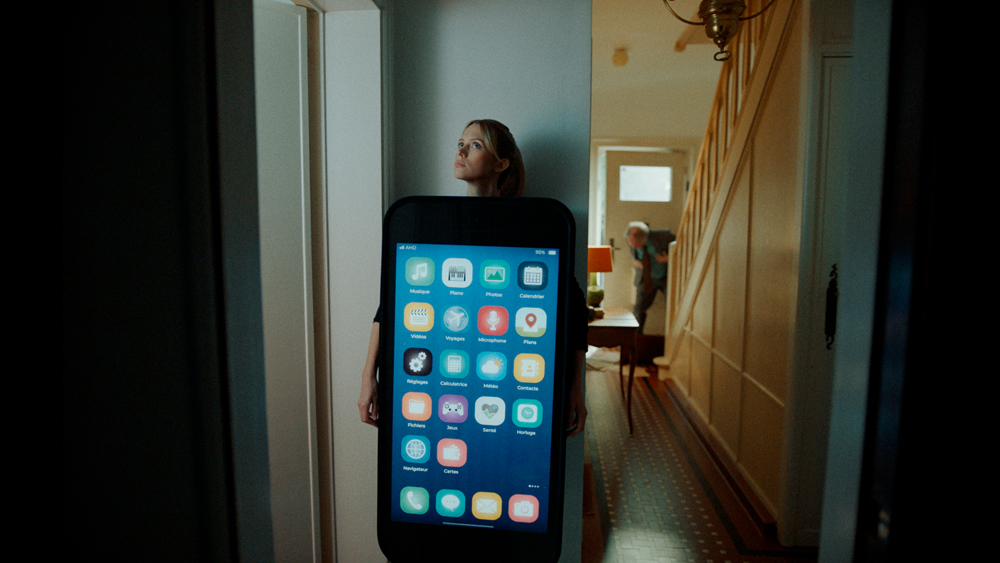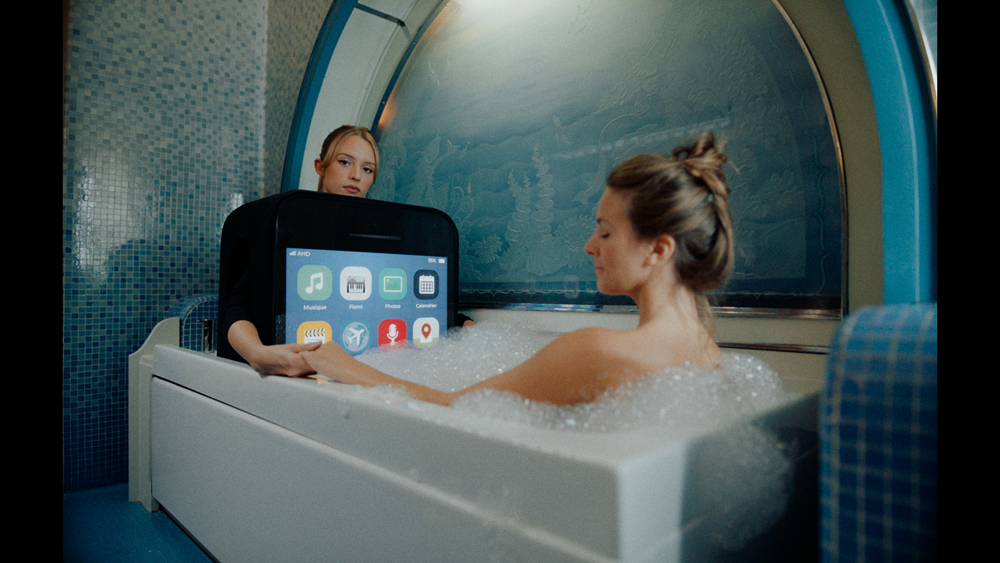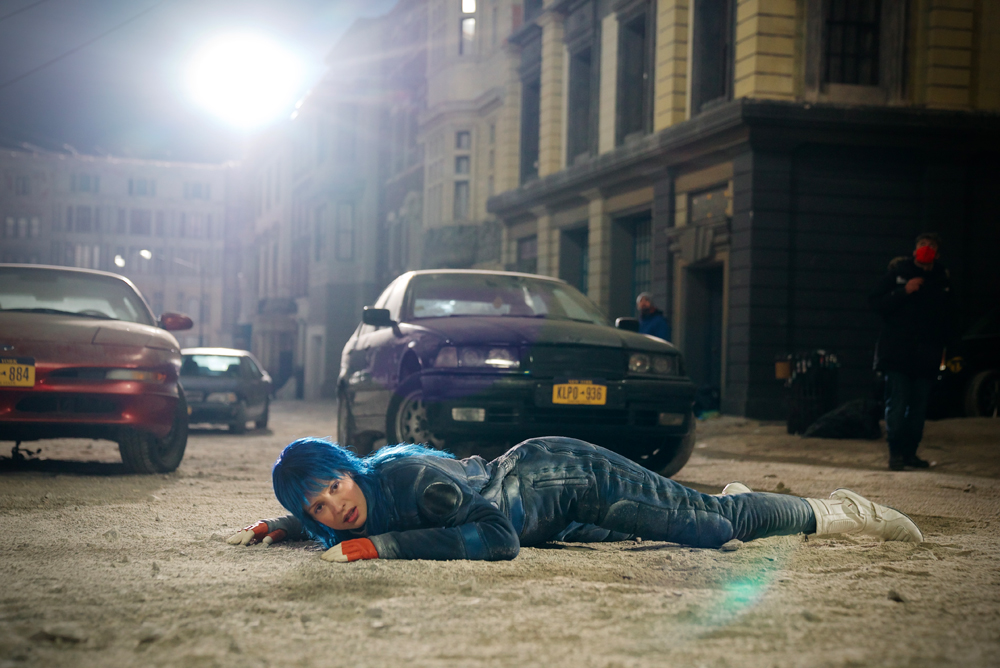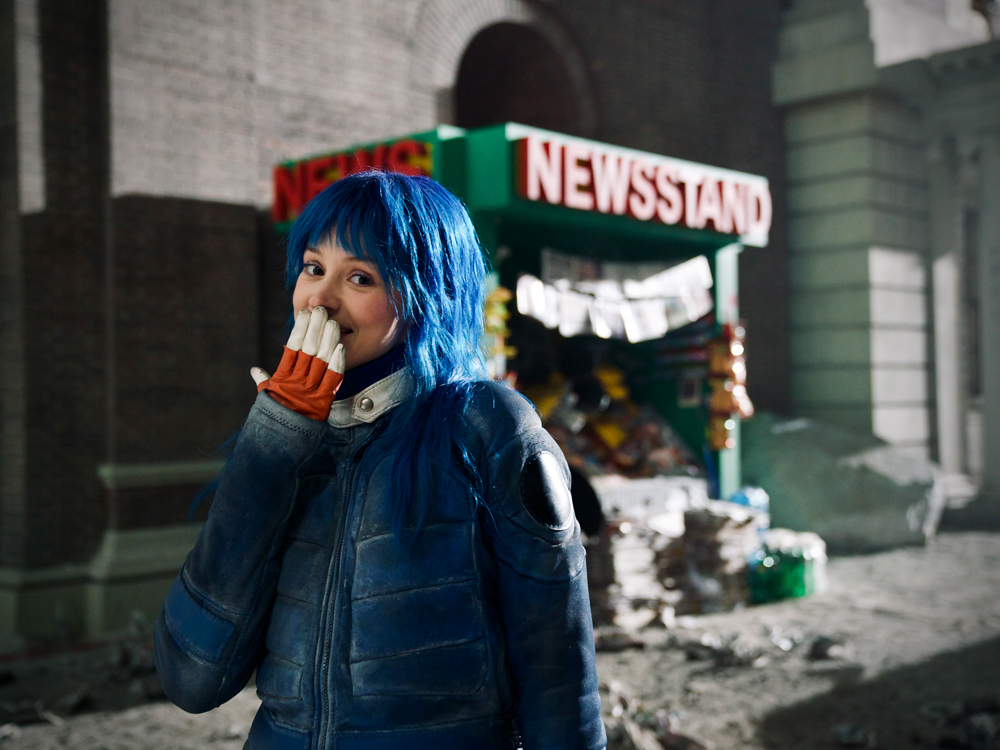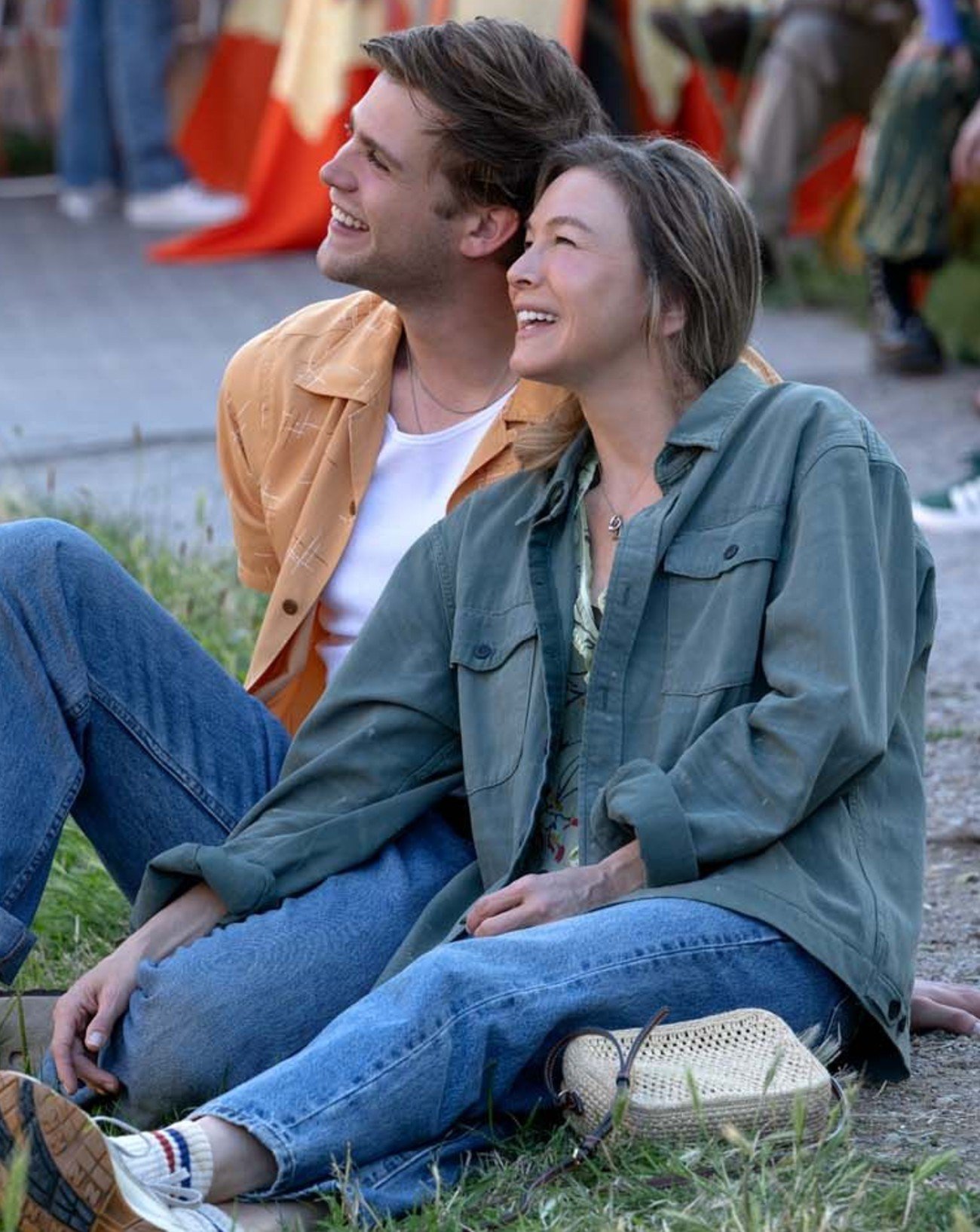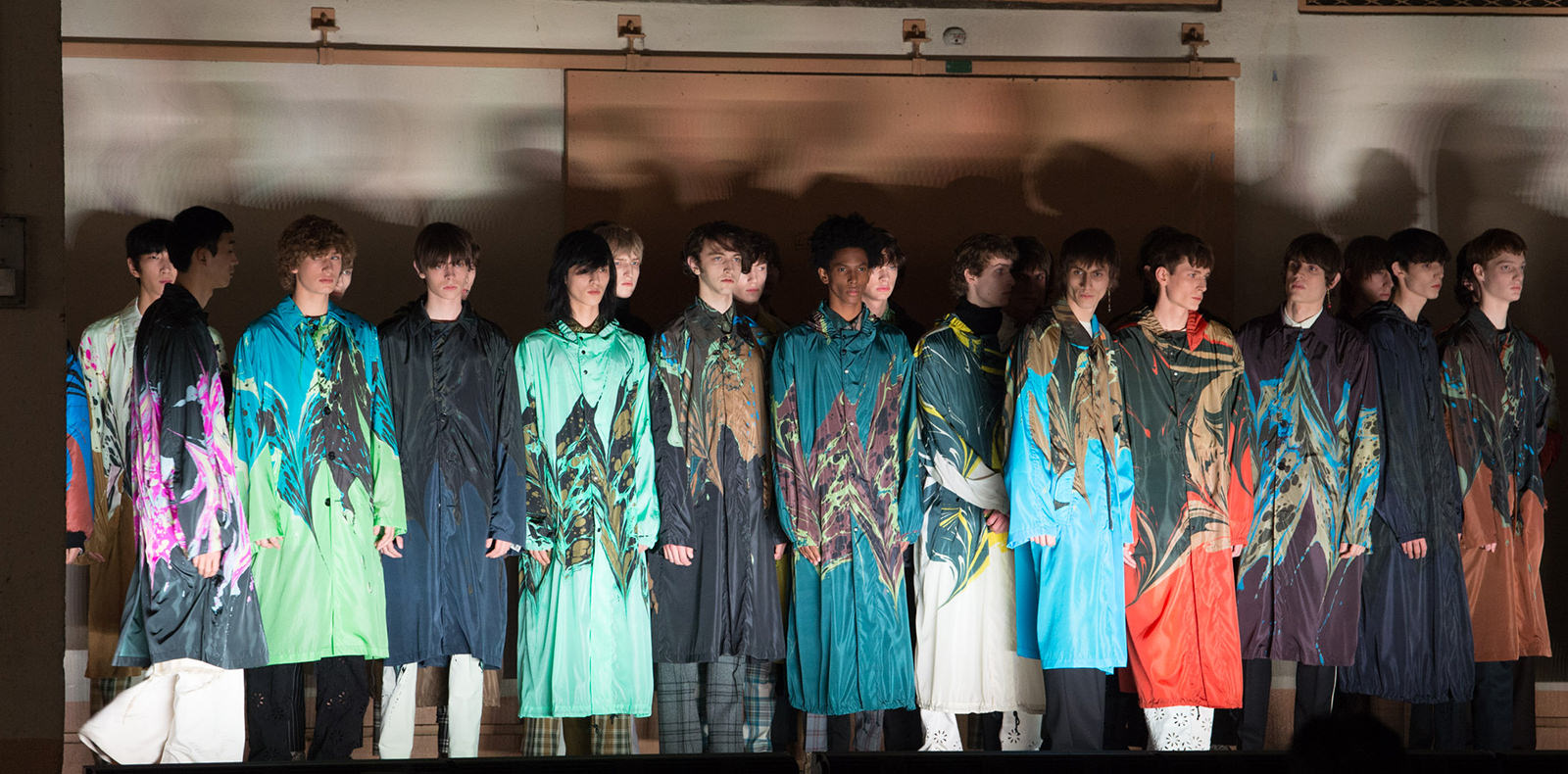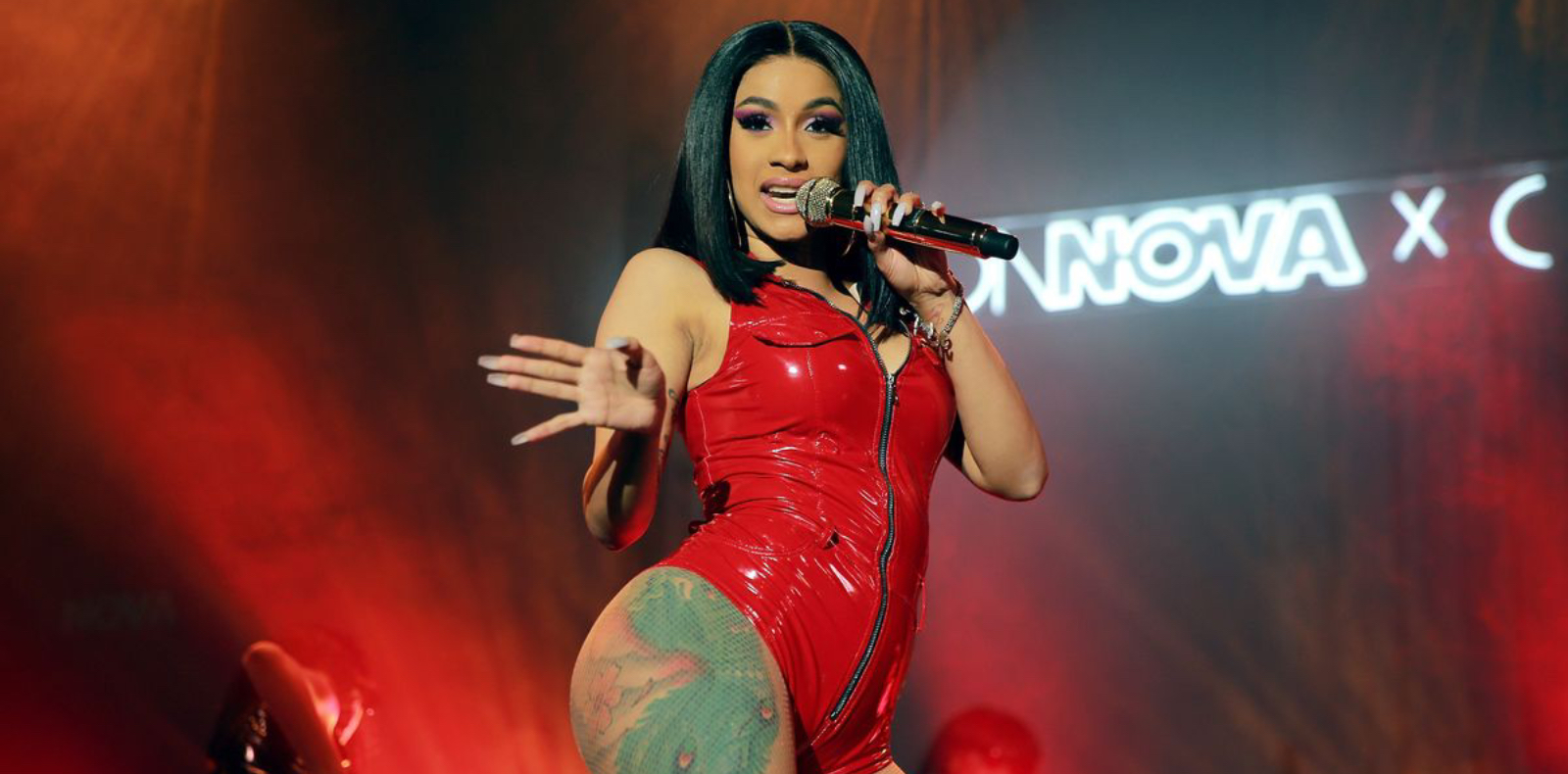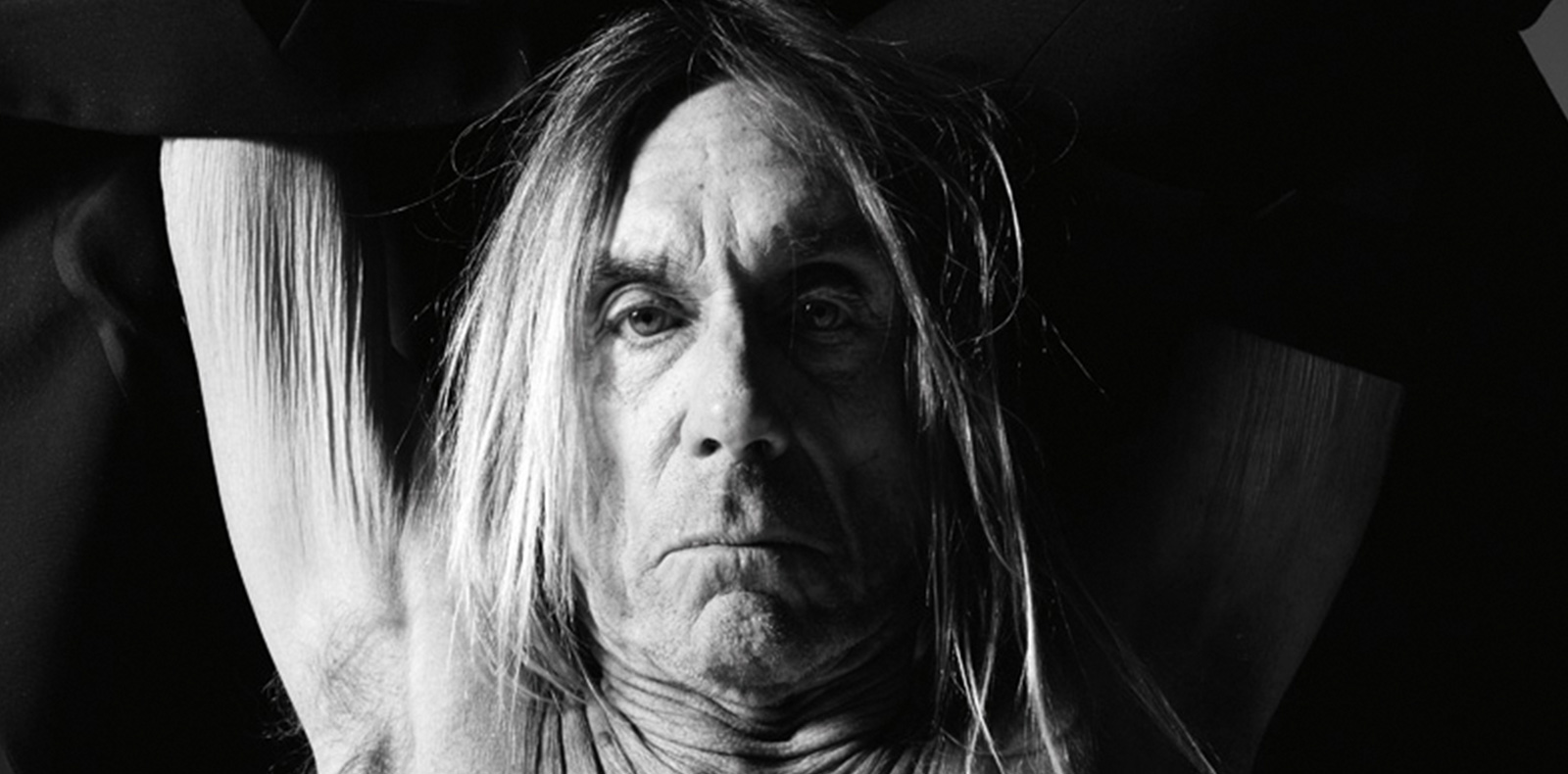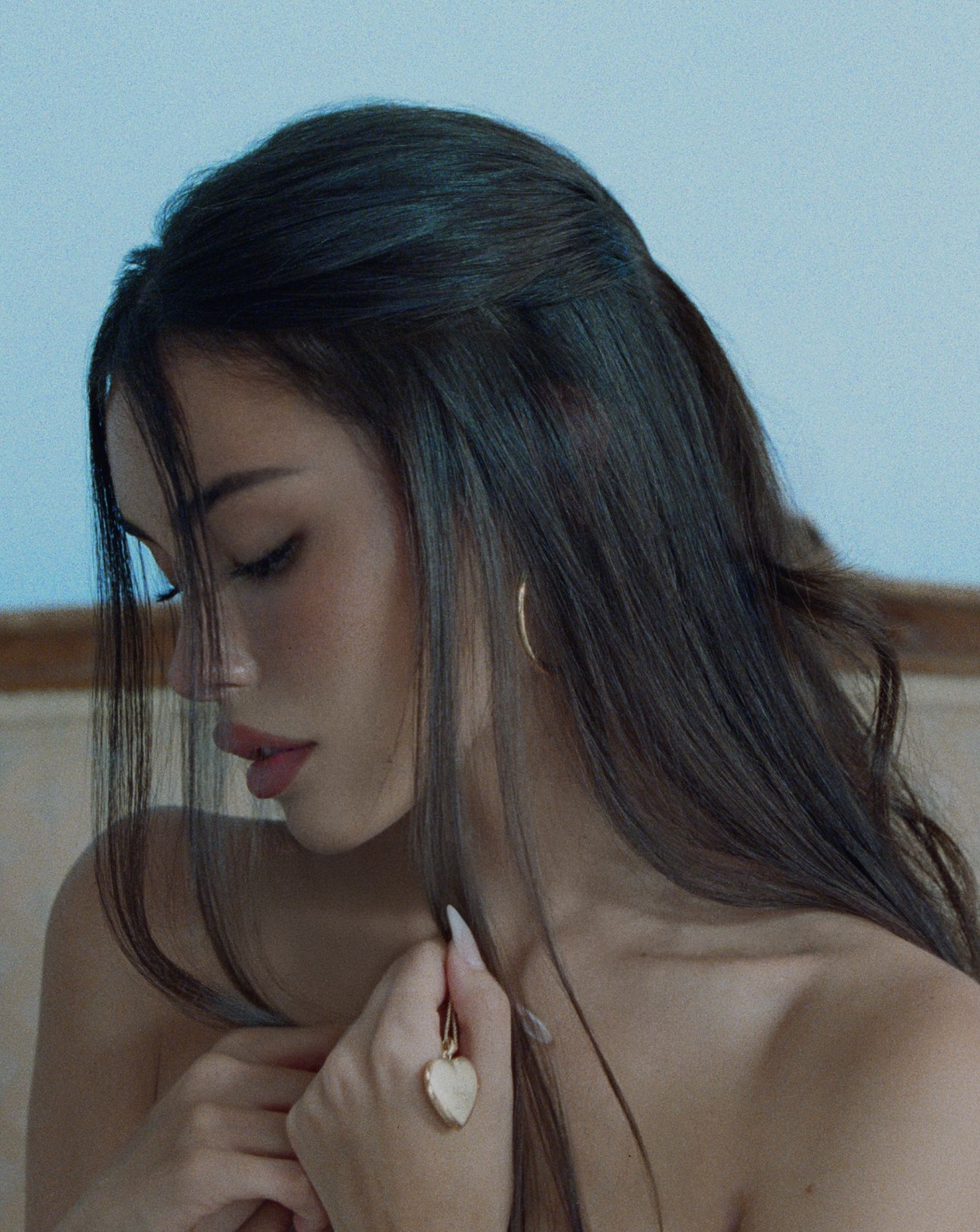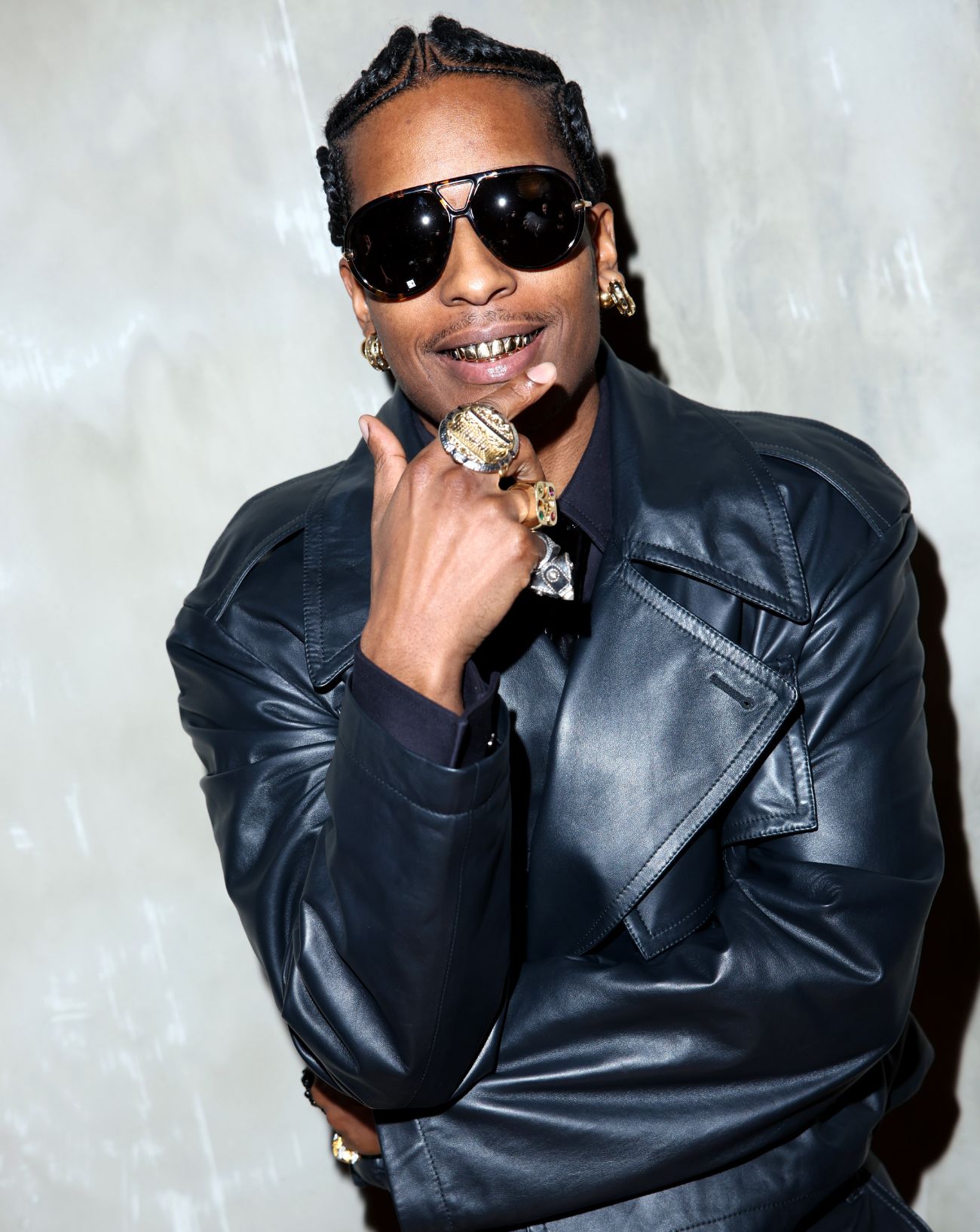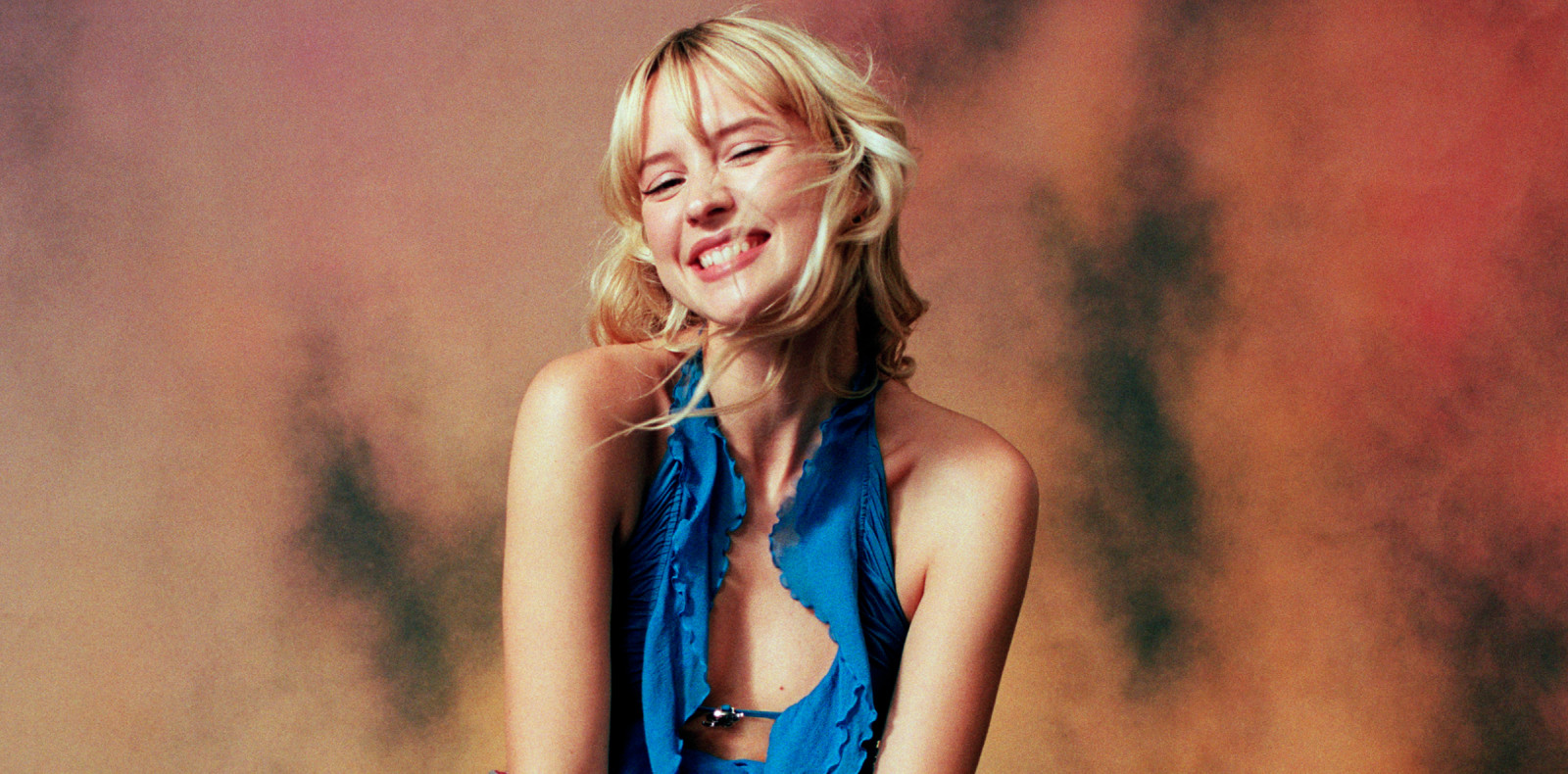
8
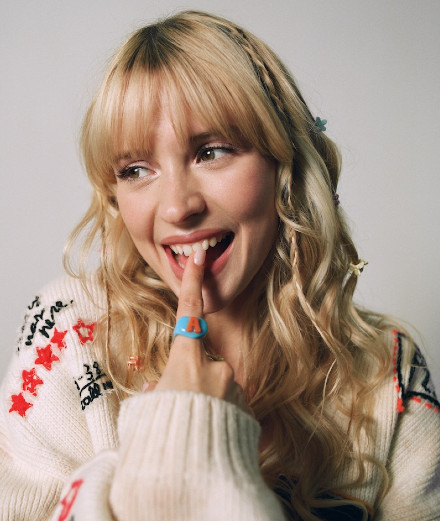
8
Interview with Angèle, the Belgian pop star who conquered the world
The Belgian magnetic pop superstar, ultra-talented singer-songwriter, promising actress, and committed Gen Z icon has taken the world by storm. An international audience is now discovering her freshness and her irresistibly vulnerable lyrics. While Angèle is touring from New York to London, Numéro has met the equally unifying, intimate, and authentic artist.
interview by Violaine Schütz.
Published on 8 May 2023. Updated on 13 August 2024.
Despite the millions of streams and views, two breathtaking albums full of generational anthems about love or modern times, spectacular sold-out concerts, an open-hearted Netflix documentary, remarkable appearances at Coachella and the Met Gala, a couple of roles in film, and a contract as a Chanel ambassador, the talented Belgian singer-songwriter, musician, and superstar Angèle, 27, seems remain surprisingly human, vulnerable, close to her fans, and true to her commitments.
Angèle, the Belgian pop star who has taken the world by storm, from Coachella to the Met Gala
As a feminist and an activist, she can talk about her dog Pépette or her grandmother in an interview, offer waffles on a video set, make funny faces, or expose her underarms hairs on social media, unbothered by any social norm. Angèle, who comes from a family of artists and started singing and playing the piano at a very young age in cafés in Brussels after graduating from a jazz school, will soon be performing on the gigantic stage of the Wembley Arena in London. Yet, she remains the ideal BFF – a sincere and funny girl who, during our Zoom interview, leaves her camera on, allowing us to see her without make-up, with a simple oversized T-shirt on, far from her insanely glamorous and fatal outfit at Met Gala.
“Vivre libre” (“Live free”), sings the Gen Z icon on one of her latest hits. The way she redefines the status of pop star, and what we hear about girls her age, whether they are artists or not, is certainly an act of freedom. Calm and cheeky, cheeky and angsty, unifying and intimate, powerful and flawed, melancholic and sweet, mainstream yet trendy… Angèle has stamped her unique and endearing touch all over the world. A tour de force for the authentic Belgian singer, who embraces her roots. While touring outside Europe, where she is highly sought-after, Angèle shares with us her doubts, but also her accomplishments, and joys.
“My generation has a peculiar notion of time, in the sense that we’ve become used to everything happening very fast” Angèle
Numéro: Where are you right now and how are you doing?
Angèle: It is 10am, I’m in New York because I’m going to perform for three nights there. I’m doing very well, thank you. What I’m going through is intense, but so cool at the same time. I’ve come to understand that I like that intensity (laughs).
You have just released a new single, Le temps fera les choses (“Time will do it”), about the way the passing time acts like a band-aid. You often address the notion of time passing too quickly in your lyrics. Why did you release a song so full of wisdom at this point in your career?
That’s a good question. This song just happened without me thinking “I have to write a song about this.” I’d almost say it wrote itself because I don’t even feel like I wrote it. It just came to me naturally. Indeed, the notion of time has always been central in my writing and in my way of thinking. I think my generation has a rather particular notion of time, in the sense that we are used to everything happening very fast. We live in a world where everything goes so fast while, at times, being meaningless. Speed and performance are highly considered, while we sometimes lose quality for the sake of quantity, which can be very anxiety-triggering. Taking time is something I still have to learn because I haven’t practiced it much in my life. When I take a step back from everything that has happened in my career (she pauses, ed.) … When I say the word “career”, I feel that it’s not the right word and that it’s still too early for me to use it…
And yet it is the right word, and you already have a brilliant career…
Yes, perhaps I can use that word (laughs)… Anyway, when I look back at my career, it’s wild to think that everything happened in such a short amount of time. So, it’s reassuring to think that when I get stuck facing some wounds or places, sometimes it’s just a matter of time to get through them. It has really been my motto in my life at times when I have been very anxious, even aside from my job or my public presence. Like everyone else, I have fears and I ask myself a lot of questions. I clung to the phrase “time will do it”, because sometimes it is the last option. The last option to heal your sorrows is time. That’s the overall concept of that song.
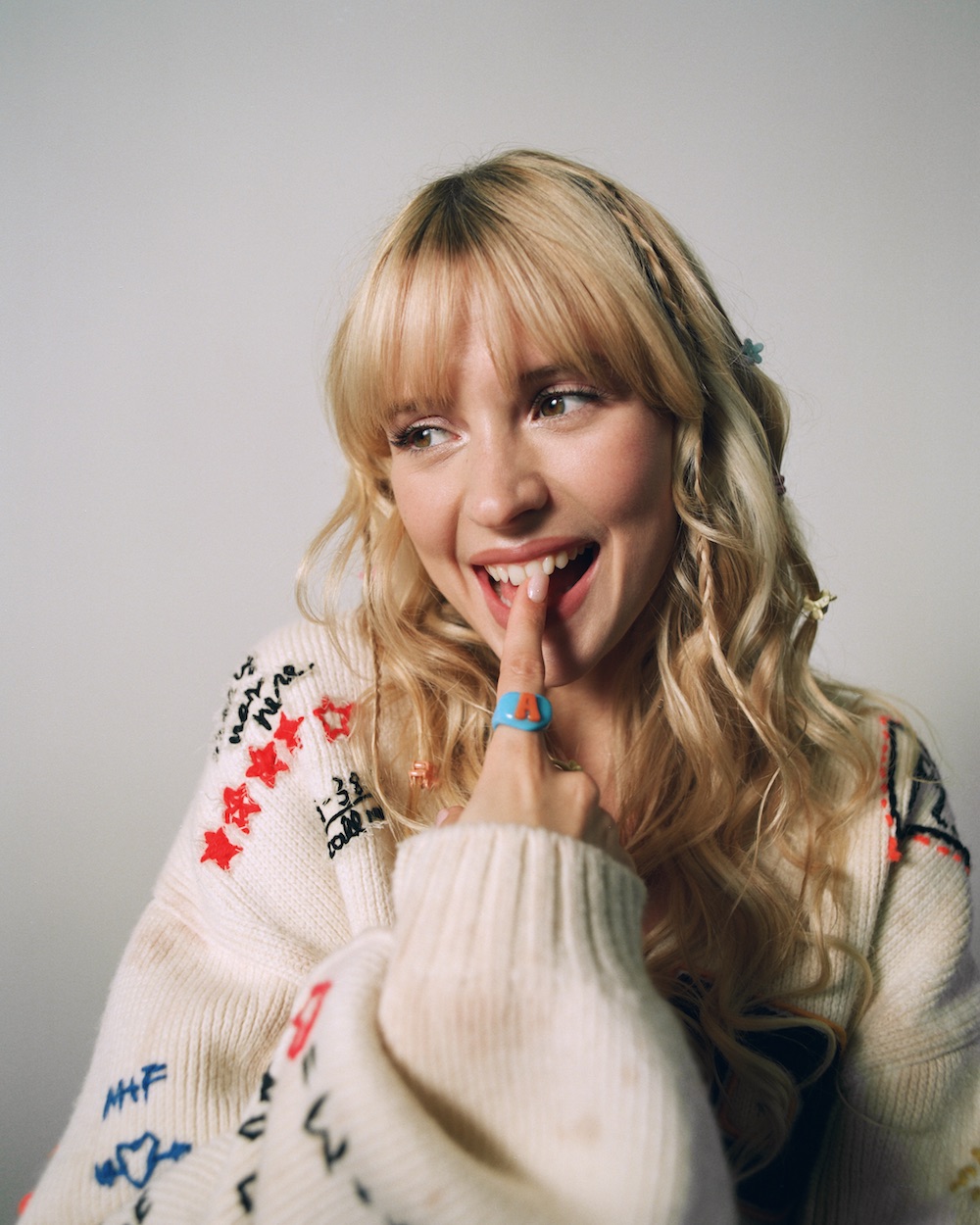
“Even though I’m very anxious, and therefore, plan everything ahead, I try not to think too much about what’s going to happen.” Angèle
You have played three nights in a row in New York, and you will be performing at Wembley Arena in London, on May 23rd. How did your mental and physical preparation look like?
I see myself as someone who truly lives in the present moment. Even though I’m very anxious, and therefore, plan everything ahead, I try not to think too much about what’s going to happen. I already think a lot, sometimes even too much, so I try not to think about the things that I can’t really control. I’m even in a bit of denial sometimes. I didn’t really prepare mentally for the US tour, because I saw it as an opportunity, as an added bonus, rather than as a chance to prove myself. And I’m glad I saw it that way because I’m pleasantly surprised by the audience’s response. I didn’t come with any specific expectations beforehand, compared to the expectations I might have had in France for instance. I didn’t come here paralyzed with stress thinking, “now is the time to give it all for my career.” So that already counts for something.
How are you perceived in English-speaking countries?
I don’t know (laughs). We really wondered what kind of audience we would meet here, because we played in many different venues, with variable sizes depending on the city. And it’s not over yet because I’m quite curious to see what the next audiences will look like. But so far, I have noticed that my audience is quite diverse. They are not all French or French-speaking people, which is a pleasant surprise. Before going my tour, I used. to think, “do I have an audience outside the French or French-speaking people?” The answer is yes, so I’m already grateful for that. Some people don’t speak French at all and look on Google Translate to decipher my lyrics, some have ties with the French-speaking world, others are learning French or want to learn it. I think that my project is appreciated for its European aspect and for its meaningful French texts. That’s the feedback I get the most. People talk to me a lot about the image and the lyrics. I want to convey that kind of message, so it suits me well.
Is being appreciated by a non-French-speaking audience, and therefore being acclaimed beyond the language barrier, liberating?
Yes, of course. It eventually comes back to the question of pressure. There is less pressure for me to perform in New York or in England than in front of my Belgian or French audience, because my traditional audience might have specific expectations and I want to keep my audience happy. I’m very fond of the close relationship I have with the first persons present at the very beginning of my project, and who keep following me today. It creates something quite intense and mutual expectations. Playing in the US is just an opportunity and a chance to find an audience that may not understand everything, but will be happy to be here, and to have come all the way to the show, even though they don’t understand my lyrics.
“You must feel some kind of desire to please to do this job”. Angèle
In the video of this new single, directed in collaboration with choreographer Mehdi Kerkouche, you gave contemporary dance a try with an older woman…
I like the fact that I’m trying out a practice I don’t master at all in this video. I’m not a contemporary dancer in any way, but I’ve always loved dancing and I always dance during my shows. For this video, I let myself be carried along by Mehdi Kerkouche and Amy Swanson, the dancer with whom I am sharing this choreography and who is incredibly experienced. The weeks I spent working on it were so nourishing that it was worth stepping out of my comfort zone, and perhaps putting myself at risk. Besides, I feel like seeing someone evolving in a field they don’t necessarily belong to creates a feeling of unease and a kind of refusal like, “no, it isn’t right”, in general. But when that kind of vulnerability is assumed, the response is positive. Anyway, it’s something I personally like to see and to show.
Similar to your roles on the big screen, was it a way of stepping out of your comfort zone, which is music?
Recently, I’ve realized that I like to step out of my comfort zone, even though I’m a very cautious person. It’s paradoxical, but I like a good adventure and I get bored easily. I am sometimes acting before thinking. I’m very controlling and, obviously, very, very concerned about what people would think of me. Otherwise, I wouldn’t be doing this job, because it seems to me that you must feel some kind of desire to please to do what I do – without it being a pejorative or obsessive tendency. I want to create things that are aesthetic, beautiful, that are pleasing to me, and that can also inspire other people artistically speaking. But I also like the idea of trying out new things outside of my sphere. The funny thing is that I didn’t start in the music industry as a great singer right away. I’m still learning to master my voice because I have become a singer before knowing how to really sing. I started singing in jazz clubs, and later on, I was on stage at Bercy. I’ve come a long way.
You have always had a unique voice…
I learned a lot practicing through the lens of others. I like that idea and appreciate the fact that evolution can be visible. Otherwise, you’re just a product and everything you do is perfect and meticulous. Projects like that do exist, but they belong to a part of pop music that I’m less attracted to. I’m less interested in pop music when there’s no room for fragility or improvement.
“If someone throws an LGBT flag at me, no matter where I am, I’m going to wear it and show it.” Angèle
Many people outside of France and Belgium have discovered you with the song Fever, featuring Dua Lipa, which has become the anthem of lockdown and of the end of lockdown. Did it help you create a strong bond with audiences abroad?
I don’t know, but one sure thing is that the song has been a real gift because Dua and I have been talking for a while. We exchanged a lot of messages during lockdown because her team had contacted mine about a potential collaboration. I remember very well when I first got the audio track of Fever. I thought it was a huge hit and that it was an incredible opportunity. Working with an artist like her and her team taught me so much both personally and professionally and brought me a new audience obviously. When I was at Coachella, I realized how far I had come, and I know that Fever was a real catalyst and opened doors for me too. The great thing is that I often get messages from people who tell me they’ve heard Fever all around the world. It’s cool because there are a lot of French words in Fever.
You performed twice at the last Coachella festival. How did you feel about this Dantean experience?
First and foremost, I was so excited to be on the lineup. I had never been there as a spectator, and I was super curious about what it would be like. The concert itself wasn’t the easiest concert of my life, because we didn’t have the same technical resources at Coachella that we usually have on stage in France. It was a shorter set, recorded live, and it was Coachella… so really stressful. I did a meditation before I went on stage and I thought, “I might as well enjoy it because that’s the only thing I can control”. Everything else, especially the people present in the audience, was out of my control. I’m someone who likes to be in charge and have everything under control… I’m quite a control freak. But paradoxically, when that control is out of my reach right from the start, it sometimes allows me to let go more easily.
During your show at Coachella, you wrapped yourself in the gay flag while singing the song Ta reine (“Your queen”), which talks about the love between two women. A strong message when we know that the owner of the festival has donated money to anti-LGBT organizations… What will be the message you want to convey during your Wembley show?
My message will be same, whether I’m at Wembley, Coachella, or in Poitiers. My concert and my lyrics will remain the same. The show will be the same. Sometimes it will take on a different dimension depending on the venue, but the lyrics will always be there. Ta reine or Tu me regardes (“You’re looking at me”) talk about lesbian couples, a theme that is part of my life and personal story. So, it’s clear to me that if someone throws an LGBT flag at me, no matter where I am, I’m going to wear it and show it. Indeed, my feminist and committed lyrics are among the most heard, listened to, and are the most important ones of my career and of my life. Balance ton quoi (“rat out your what”, the French #MeToo being coined as “rat out your pig”, ed.) is a song that changed my life. It captures my feminist awakening that started during #MeToo, like many people in the world, I think. I was already familiar with some feminist notions prior to that, because I’m lucky enough to have a mum who instilled a lot of values in me. But current events have opened my eyes to this inherent problem in our society, to the patriarchy, and to the urgency of acting on it.
“I went through deep ups and downs that could have damaged my mental health.” Angèle
How was the hit song Balance ton quoi born?
I wrote the first lines just like that, in my room, but I didn’t imagine that those lines would allow me to meet new people, to have the video of the song directed by Charlotte Abramow, which was a turning point in my career, but also in my life, because I learnt so many things. Today, it’s a song that follows me everywhere and that remains a key moment of my shows, because it represents a time of celebration and empowerment too. It’s about taking your power back. To be able to sing that song in front of thousands of people of all kinds and ages, from children to grandparents and teenagers, and from all walks of life is a unifying and powerful experience.
A few days ago, you walked on the Met Gala red carpet in a gorgeous Chanel dress. Sofia Coppola even posted a photo with you on her Instagram account…
Indeed, at the Met, you meet personalities that you are very happy to see, like Sofia Coppola, whom I had already met and who had come to one of my concerts. The chance of getting to know someone like her is quite an opportunity. But actually, you only meet really famous people at the Met Gala, so after a few minutes, it becomes almost normal… I’ve never thought I would walk that red carpet one day. Like being on Coachella’s lineup, being invited already feels so huge and unexpected that I was already overwhelmed before even attending the event. Being there is an event in itself for me. The Met is a very special event, unlike anything I’ve done before. It’s really prestigious, but in the American way. They set the bar very high. You have to let them guide you and let go once you get there. What’s surprising is that you’re alone at the gala, without your staff and management, left on your own in a sense. The fact that this kind of experience doesn’t happen often makes it fun. Everyone talks about this red-carpet public event, which means a lot of pressure. But no one was expecting me there, which puts it into perspective.
What would the 27-year-old Angèle say to the 14–15-year-old Angèle, who may not have had the same confidence as you today…?
I feel like I’m in therapy (laughs). Actually, the 14–15-year-old Angèle led a relatively cushy life. I would just say to her: “Live your life and don’t ask yourself too many questions.” Sometimes I’d rather talk to the 21-year-old one who started to go for it and take a lot of risks. I didn’t have a good support system, both in my personal or professional life at the time. I went through deep ups and downs, which could have damaged my mental health. I believe I’ve worked on that since then, but sometimes I’d like to go back to her and give her a hug and say, “you’re handling this.” At that time, I would have liked to have someone reassuring me, telling me that I was legitimate to do this job, and saying: “Go. If you feel like you belong there, go for it, and try to do everything you can to create something good, meaningful, artistically coherent, and with lyrics that you believe in. Do as much as you can to take up enough space to no longer feel illegitimate. To sum up: ‘Try to make yourself legitimate by doing something meaningful.’” That’s more or less what I would say to her…
Nonante-Cinq La suite (2022), available. Angèle will perform at Wembley Stadium, London, on May 23, 2023 and at the Solidays festival, in June 2023.






